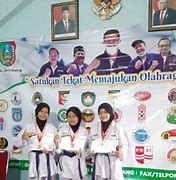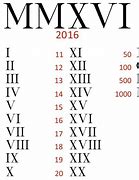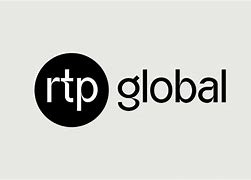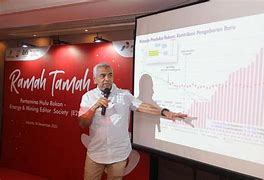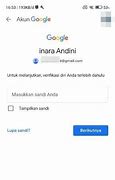
Main Responsibilities
Under the direct supervision of the Project Coordinator the Project Field Coordinator
is responsible for the following duties:
The Project Field Coordinators should meet each of these requirements and/or have other related and relevant qualifying experience:
_____________________
RedR Indonesia is an equal opportunity employer with positive discrimination policies to ensure opportunities are available to all applicants regardless of race, gender, sexual orientation, religion or creed and those with functioning limitations (persons with disabilities). RedR Indonesia is committed to zero tolerance policy toward sexual exploitation and abuse. All employees and partners must comply with related policies including Protection from Sexual Exploitation and Abuse Policy, Child Protection Policy, Anti Fraud, Bribery and Corruption Policy, and Anti Terrorism Policy.
Shiraishi An (白石杏), Shiraishi An is a second-year student at Kamiyama High School. She is part of the street music group Vivid BAD SQUAD.
Cheerful and honest, An helps out at Weekend Garage. She was working towards surpassing her father's team's legendary event, RAD WEEKEND, when she learned an earth-shattering secret about Nagi, his teammate and her role model. After learning about Nagi's hopes from her father, An has bounced back, pledging once more to surpass the legend.
An is the daughter of the popular former musician Shiraishi Ken, who now owns a popular live cafe & bar called WEEKEND GARAGE, where she sometimes worked until the end of On Your Feet. An hopes to one day surpass the legendary event he put on, called RAD WEEKEND. She has been surrounded by music ever since she was young, and began singing partially because she felt a natural connection to it, and partially because she wanted to be like her dad.[1] She has a lot of connections in the street music scene, due to being Ken's daughter.
When Kohane came back to WEEKEND GARAGE after hearing An sing there, An invited Kohane to form a group with her, calling themselves Vivids. After some rivalry and conflict, they join Akito and Toya of BAD DOGS to become Vivid BAD SQUAD, though she and Kohane are still active as Vivids.
In her first year, An was classmates with Mizuki in class 1-A. In her second year, she is classmates with Akito and Nene. She is a member of the disciplinary committee, joining because a friend from middle school kept bugging her to.[2]. She also occasionally helps out the basketball team by being a stand-in for them,[3] an interest she shares with her childhood friend Haruka.
An has amber eyes and long, waist-length black hair with blue tips, worn loose with little star accessories. She takes out her earrings and star accessories during school.[4] Her voice is strong and radiant.
Her outfit consists of a tucked-in black shirt, white shorts with neon green accents and two black straps on each side hooked to the front and back, and a teal-and-white oversized jacket which has the word "HEADS" printed on its left sleeve and neon green accented strings. She also wears white sneakers and a pair of chunky neon green headphones around her neck.
Her second outfit consists of a cropped black shirt with long open-shouldered sleeves and a dark blue-and-teal design from her sternum down, and baggy white pants with hot pink stripes down the sides of the legs and a black design on the cuffs. She wears a long black belt with the word "HEADS" printed along its length, black-and-teal running shoes, and a layered silver necklace. She swaps her hair clips for simpler ones.
An is a cool and candid girl with an unyielding spirit. She acts very affectionate towards her close friends, and is very kind and forgiving. She leaves a strong impression on others and is hard to forget. An encourages those around her to be the best they can. However, her and Akito often bicker due to their long-standing rivalry.
When An is part of the disciplinary committee at Kamiyama, she gets nervous when asking someone to follow the rules, getting shaky and stuttering when asking someone to tuck in their shirt.[4]
Shiraishi (白石) means "white stone".
An (杏) means "apricot".
A list of characters An interacts with in the game.
Subpage: Relationships
Azusawa Kohane: Fellow group member and close friend. They consider each other partners, and while An tends to be overprotective towards Kohane, she is learning to rely on her more equally. An gave Kohane confidence to perform.
Despite this, An is also shown to have feelings of inferiority towards Kohane. In Bout for Beside You, she becomes afraid that Kohane would one day leave her behind after her rapid improvement during Awakening Beat, and was also jealous of her vocal skill. She is trying to keep up with Kohane. She later confesses these feelings to Kohane, how she didn't want Kohane to leave her. However, much to her surprise, Kohane actually improved greatly due to her groupmates. Kohane realizes An was lonely without her and decides to give her all her support in the future.
It's suggested that the other characters in the cast have interpreted them as being more than just partners, as when An vaguely informs Akito, Toya, Mizuki, and her father that she's going on a date in her Peak Excitement! side story, they all immediately know that it’s with Kohane without needing a moment to consider it. When An expresses disappointment at their lack of surprise, Akito bluntly asks her "Who else could it be?" while Mizuki points out that An talks about Kohane so much that they immediately knew. Tsukasa, Rui, and Mizuki also work together to make her a Kohane doll for her birthday.
Shinonome Akito: Fellow group member. As revealed in the Vivid BAD SQUAD unit story, An and Akito have known each other since middle school due to Akito making frequent visits to WEEKEND GARAGE after his experience with RAD WEEKEND. However, it's implied that they weren't particularly close during that time due to the amount of distance and animosity they treated each other with. On An's side, she referred to Akito by his first name due to them being in the same age group, but would otherwise refer to him with the rude form of "You", which is "あんた" in Japanese, until they became more friendly.
After becoming Vivid BAD SQUAD, a more friendly rivalry forms between them and they bicker over various things, much to Kohane’s dismay. Their rivalry drives them to do their absolute best in each performance and they have great teamwork for surpassing RAD WEEKEND's popularity.
Aoyagi Toya: Fellow group member. They've known each other since middle school. However, it's implied that they weren't particularly close until after Vivids and BAD DOGS join together to become Vivid BAD SQUAD. Toya recognizes her talent and her dream of surpassing RAD WEEKEND, stating that she is "like Akito" in that regard, and An appears to mutually respect him.
Hinomori Shiho: Met for the first time during In This Singing City when Shiho picks up the flyers from Kohane. The two reunite at the mall and explore for the day, running into Ena and Nene as well.
Hanasato Minori: Friend through Kohane following Scramble Fan Festival! The two got even closer during the events of Time to Hang Out, where Minori asked An about what Haruka was like when they were kids. An told her she had a great time, and promises they'll come back to Phoenix Wonderland some day.
Kiritani Haruka: Close childhood friends since elementary school. However, the two were separated when Haruka went to Miyamasuzaka and An went to Kamiyama High. They still hang out together outside of school. The two have a bit of a rivalry and would compete in things such as seeing who could eat their lunch faster in elementary school. It is also reflected in their Trust Rank title "Rivals in Everything but Studying".
Hinomori Shizuku: Despite meeting for the first time in the wedding photoshoot, An already knew about Shizuku since she used to be part of the idol group Cheerful*Days, while Shizuku knew about An from Haruka. Shizuku later helped An's modeling for a wedding photoshoot. Since then, they have become good friends.
It was implied that An was attracted to Shizuku to some degree, as in Wishing to the Blue Sky for Your Happiness!, she becomes uncharacteristically flustered after accidentally tripping and falling into her arms and soon after thinking to herself that she was "thrilled" to be so close to Shizuku’s beauty. Kohane also describes An as being "cuter" when she's with Shizuku, referring to how shy An becomes when she's "spoiled" by people, especially by people she considers mature and cool. However, An clarifies in Chapter 8 of the event story that she admires Shizuku.
Kusanagi Nene: Classmates. They interacted more in the Picture Perfect! event, as An and Akito played lead roles in the film. An praises Nene, as she believes Nene was a great director and had helped with her acting skills.[5]It's also shown that An had helped Nene brainstorm some ideas for their film, becoming closer in the process.
Shinonome Ena: Despite attending the same school, Ena and An don't properly meet until Chapter 2 of What lies behind. What lies ahead. due to Ena attending night classes. An is immediately taken with Ena after meeting her, and says that she always wanted to meet her after hearing stories about her from Akito. Fining out from Mizuki's Reverse Hermit side story that An walked away with a different impression of Ena than the version of Ena that Akito described as "difficult" to his unit members. Mizuki, who concedes to Akito's interpretation of Ena's character, decides not to break the truth to An to spare Ena's honor.
Akiyama Mizuki: Good friends and schoolmates. It is shown that An is one of the few people who treats Mizuki like a normal person. An invites them to the school festival with the reassurance that they won't stand out too much, due to many people already being in costumes. They especially enjoy talking about fashion together, and Mizuki also likes to scare An with ghost stories. The two were also classmates during their first year in Class 1-A.
In What lies behind. What lies ahead. An also helped Mizuki keep their complicated situation with their peers a secret, as she avoids going too into depth about it when asked by Ena how Mizuki is in school after noticing Mizuki's visible discomfort, instead only mentioning their grades and issues with their attendance and the teachers. When the two discuss the interaction in Mizuki's Reverse Hermit side story, Mizuki thinks to themself that An was kind for being considerate of them.
Hatsune Miku: VIRTUAL SINGER and friend.
Kagamine Rin: VIRTUAL SINGER and friend.
Kagamine Len: VIRTUAL SINGER and friend.
Megurine Luka: VIRTUAL SINGER and friend.
MEIKO: VIRTUAL SINGER and mentor. Wishing to the Blue Sky for Your Happiness! reveals that An admires MEIKO for being a kind and dependable older sister figure, which is what An aspires to become.
KAITO: VIRTUAL SINGER and friend.
Shiraishi Ken: An's father and mentor. Famed for being a part of the street music group RADder and for his role in RAD WEEKEND, An looks up to her father and aspires to be a great street musician like him. They have a very close and trusting relationship. An often helps out at her father's live bar and café, WEEKEND GARAGE.
Kotaki Taiga: Ken's old teammate and An's "uncle." He has known An since she was a child and treats her like family. However, when An asked him to mentor her on music, he refused for unspecified reasons, much to An's frustration.
Kotaki Nagi: Ken's old teammate and Taiga's younger sister. They have known each other since An was a young child, and An has a great deal of respect and trust for Nagi as an older sister figure and mentor. The two would often hang out together and do things like go to the arcade to play fighting games.[6] However, despite their closeness, An and Nagi lost contact after Nagi presumably went to the United States with Taiga following RADders' disbandment. Though in Light Up the Fire, An learns of Nagi's fate and the fact she had asked everyone to hide the truth from An and her group so she wouldn't be upset. The news leaves An devastated, but also more determined than ever to surpass RAD WEEKEND.
Mita Kotaro: A friend of BAD DOGS and An's acquaintance. An would often forget who he is during their initial interactions due to his infrequent appearances in the story. However, they have become a bit closer after Vivid BAD SQUAD hosted their first event in THE POWER OF UNITY, which Kotaro also participated in. In An's Nuanced Language side story, Kotaro understood the feeling An wanted to convey when describing to Akito what to add to his demo, and he expresses the same amount of frustration as An when Akito doesn't understand their explanation.
An is featured in the SEKAI version or has an alternate vocal of the following songs:
Offenbar hast du diese Funktion zu schnell genutzt. Du wurdest vorübergehend von der Nutzung dieser Funktion blockiert.
What does it mean to get infected by Pegasus?
Many people targeted by Pegasus have reported receiving text messages attempting to trick them into clicking on an accompanying link. The experience can be frightening and extremely invasive, even before any infection occurs.
Carmen Aristegui, a Mexican investigative journalist, received dozens of messages impersonating the U.S. Embassy in Mexico, her colleagues, and even her bank and phone company.
“Carmen my daughter has been missing for 5 days, we are desperate, I would be grateful if you help me by sharing her photo,” read one message, accompanied by a malicious link.
Aristegui’s son, then a minor, also received such texts, including a “warning” that his social media account had been compromised. “Friend, there is a pseudo account on fb and twitter identical to yours check it out so you can report it,” it read.
Such “phishing attempts,” as they are widely known, have become so commonplace that many people have learned to be on their guard.
But the Pegasus software has gradually become more sophisticated, with the most recent versions able to gain entry to a target’s mobile phone without requiring them to click on a link, or take any action at all.
Once installed, Pegasus can extract data, conversations, contacts, and call logs from the victim’s phone. It can even switch on microphones and cameras to silently record live audio and video.
For a fuller explanation of what Pegasus can do, read OCCRP’s explainer.
Exciting opportunity with RedR Indonesia
Position Title: Project Field Coordinator Reporting to: Project Coordinator Job Status: Field-based staff Contract duration: 7 months, extendable Duty Station: Kupang, NTT. Start Date: November 15th, 2021
Please send us your application, including the provision of 3 referees, via email to [email protected] with subject: Application: Community Organiser – [your name] by no later than November 10th, 2021. As a part of your application, you will need to provide: • A curriculum vitae of no more than 2 pages • A cover letter telling us how your skills, experience and qualifications make you the best candidate for this opportunity. Incomplete applications will not be processed.
Three appointed Project Field Coordinators are required to travel to villages in their designated District, coordinate with the leadership of villages, liaise with relevant District and Province officials to ensure support for the implementation of the project. The primary task is to coordinate capacity strengthening events for the village leadership. However, those travels are subject to the pandemic situation and under coordination with RedR Indonesia procedures.
RedR Indonesia is an emerging humanitarian agency working for improving emergency relief. RedR Indonesia is part of the international RedR network of accredited organisations, each sharing a common vision and mission.
Our aims are to provide sufficient, competent and effective relief personnel to the front-line and provide personnel to local and international relief agencies whenever required; to improve and maintain the competence of relief personnel; to cooperate and work with other agencies in maintaining the availability of trained and competent relief personnel; and to increase humanitarian response capacity in Indonesia through providing people with internationally recognised training and access to international experience.
We believe that suffering caused by disasters can be reduced by selecting, training and providing competent and committed personnel to humanitarian programs across the world.
RedR Indonesia is implementing a “Reducing Risk and Supporting Recovery to Covid-19 at Community Level” project in NTT Province. The project requires intense relationship and communication between the project team and the community at village levels primarily and local authorities in general.
For that reason, the Project Field Coordinator primary responsibility is to coordinate capacity strengthening activities, formation of village taskforce and increase village resilience against Covid-19 and other disasters.
Entails to the task above, the Project Field Coordinator is expected to building good communication with the community, and fostering dynamic relationships and establishing networks, liaise both with local government (government officials) and with other institutions related to the program.
Who was being targeted?
NSO Group contends that its Pegasus software is meant only to help legitimate law enforcement bodies go after criminals and terrorists, and that any other use would violate its policies and user agreements.
The Pegasus Project did find numbers belonging to suspected criminal figures on the leaked list. However, of over 1,000 numbers whose owners were identified, at least 188 were journalists. Many others were human rights activists, diplomats, politicians, and government officials. At least 10 heads of state were on the list.
For the most part, NSO Group’s clients selected people from their own countries for targeting, but they did occasionally target foreign numbers, including those belonging to politicians and journalists.
Government investigations
On 20 July 2021, it was reported that French prosecutors would investigate allegations that Moroccan intelligence services used Pegasus to spy on French journalists.[127]
France's national agency for information systems security (ANSSI) identified digital traces of Pegasus on three journalists' phones and relayed its findings to the Paris public prosecutor's office, which is overseeing the investigation into possible hacking.[92]
Peran utama dalam perencanaan, pelaksanaan, pemantauan, pengendalian dan penutupan proyek
What was NSO Group’s response to the data presented by the Pegasus Project?
NSO Group has denied that the list of 50,000 phone numbers could be a list of targeted persons.
A law firm retained by the company wrote that it looked more like a public list of “HLR” or “Home Location Register” data. HLR data is essentially a database kept by mobile phone companies that allow a real time query of a subscriber’s information. It includes information such as whether a phone is in a network, whether it is active, whether it is roaming, and other basic information.
Karsten Nohl, the chief scientist for Security Research Labs in Berlin, said that HLR lookups have long been used in surveillance of mobile phones because they indicate whether the phone is on, and thus available for hacking.
Moreover, a source with knowledge of NSO Group’s software said that HRL lookups are integrated into the Pegasus system.
Amnesty International’s forensic analysis, explained in question 2 above, also shows that in many cases the targeting was swiftly followed by an infection, often within minutes. This is consistent with a system that had an integrated HLR lookup. Cases when infection did not follow could correspond to HLR lookups that showed the phone was not available at the time.
In sum, NSO Group could be correct that the 50,000 numbers represent HLR data — and this would not contradict journalists’ findings that the same data could represent the selection of targets for infection with Pegasus.
NSO’s full response is here.
Akses Daftar dan Login Masuk Ke Situs Slot Gacor PGBET Mudah Dan Anti Blokir Kami memahami kesulitan Anda dalam mencari alamat resmi dan terbaru situs PGBET, terkadang pemain sulit untuk mendaftar dan login masuk ke akun bermain mereka. Tidak perlu bingung karena di situs PGBET ini kami memberikan solusi efektif dan akurat, kami merekomendasikan untuk bookmark atau mengingat alamat resmi situs PGBET di PGBET.LINKPGBET Alternatif
Journalism investigatigation
The Pegasus Project is an international investigative journalism initiative that revealed governments' espionage on journalists, opposition politicians, activists, business people and others using the private Pegasus spyware developed by the Israeli technology and cyber-arms company NSO Group. Pegasus is ostensibly marketed for surveillance of "serious crimes and terrorism". In 2020, a target list of 50,000 phone numbers leaked to Forbidden Stories, and an analysis revealed the list contained the numbers of leading opposition politicians, human rights activists, journalists, lawyers and other political dissidents.[1]
A small number of phones that were inspected by Amnesty International's cybersecurity team revealed forensic evidence of the Pegasus spyware, a zero-click Trojan virus developed by NSO Group.[1] This malware provides the attacker full access to the targeted smartphone, its data, images, photographs and conversations as well as camera, microphone and geolocation. This information was passed along to 17 media organisations under "The Pegasus Project" umbrella name. Reports started to be published by member organisations on 18 July 2021, revealing notable non-criminal targets and analysing the practice as a threat to freedom of the press, freedom of speech, dissidents and democratic opposition. On 20 July, 14 heads of state were revealed as former targets of Pegasus malware.[2] Various parties called for further investigation of the abuses and a limitation on trading such repressive malware, among them the newsrooms involved, the Committee to Protect Journalists, the International Press Institute, and Edward Snowden.
The Pegasus spyware was developed by the Israeli cyberarms company NSO Group. It can be covertly installed on mobile phones (and other devices) running most[3] versions of iOS and Android. The spyware is named after the mythical winged horse Pegasus—it is a Trojan horse that can be sent "flying through the air" to infect phones.[4] Usages of the Pegasus spyware have been monitored for years. Amnesty has argued that the digital invasion is correlated with real-life consequences for spied targets, via psychological or physical damages.[5]
The NSO Group exports are overseen by the Israeli Ministry of Defense's Defense Exports Control Agency (DECA).[6]
In 2020, a list of over 50,000 phone numbers believed to belong to individuals identified as "people of interest" by clients of the Israeli cyberarms firm NSO Group was leaked to Amnesty International and Forbidden Stories, a media nonprofit organisation based in Paris, France. This information was passed along to 17 media organisations under the umbrella name "The Pegasus Project". Over several months, over 80 journalists from The Guardian (United Kingdom), Le Monde and Radio France (France), Die Zeit, Süddeutsche Zeitung, WDR and NDR (Germany), The Washington Post and Frontline (United States),[7] Haaretz (Israel), Aristegui Noticias and Proceso (Mexico), Knack and Le Soir (Belgium), The Wire (India), Daraj (Syria),[8] Direkt36 (Hungary),[9] and OCCRP investigated the spying abuses.
What’s new here? What does the Pegasus Project add to what’s known about NSO Group?
Years of reporting by investigative journalists and digital rights advocates has led to the identification of many victims of NSO Group’s software on an ad hoc basis. But those cases depended on the targets coming forward themselves after receiving a suspicious message or otherwise having reason to think their phones were breached.
The Pegasus Project approached the topic from the other direction, identifying potential victims from a leaked list of numbers believed to be selected as targets by NSO Group’s clients.
This allowed reporters not only to identify many new victims, but also to leverage the list as a basis for examining the accuracy of long-held contentions that Pegasus is systematically used to target journalists, activists, and other non-criminal figures. The reporting found widespread additional evidence that this is the case, painting the most complete picture to date of what Pegasus does around the world.
Heads of state and government
According to an analysis by the German newspaper Die Zeit and others, the following incumbent and former heads of state and government have been targeted,[19][20] implying possible full access to their mobile phones' data:
Used against opposition journalists, opposition leaders and critics.
Used against opposition leaders, union ministers, journalists, administrators such as Election Commissioner and heads of the Central Bureau of Investigation (CBI) and minority leaders.
Used against anti-corruption journalists, opposition leaders and a judge.
Used against opposition, Western Sahara–friendly journalists in Morocco and France, and more than 6,000 Algerian politicians, high-ranking military officials, heads of intelligence, civil servants, diplomats and activists.[21]
In July 2017, Prime Minister Beata Szydło agreed with Benjamin Netanyahu to buy Pegasus licenses.[44] Michał Woś, deputy minister of justice, requested a parliamentary committee to divert funds from a ministry-run fund to "combat crime."[45][46] Once approved, the Central Anticorruption Bureau (CBA) purchased the licenses for PLN 33.4 million.[47] The transaction with NSO Group was camouflaged with unrelated invoices.[45][48] The contract for 40 licenses to be used over three years was mediated by Matic, a company established by former Militia and Security Service associates.[49] The spyware was first deployed in November 2017.[47]
In 2018, Citizen Lab suspected that an operator codenamed "ORZELBIALY" (Polish for "white eagle," a reference for the coat of arms of Poland) was spreading Pegasus through mobile network operators.[50] In 2020, Rzeczpospolita reported that the bulk of evidence in a corruption case against former Civic Platform politician Sławomir Nowak was obtained using Pegasus. The CBA denied ever buying the license, still the government assured it had court permission.[51]
In December 2021, Citizen Lab announced to have found multiple hacks into phones of prominent opposition figures during the 2019 parliamentary elections that the right-wing populist party Law and Justice (PiS) of Jarosław Kaczyński won by a slim margin, which lead to a further erosion of judicial independence and press freedom.[52] As of January 25, 2022, the reported victims include:
On February 7, 2022, the Supreme Audit Office (NIK) revealed that between 2020 and 2021, 544 of its employees' devices were under surveillance in over 7,300 attacks. According to NIK experts, three of the phones could be infected with Pegasus.[58]
On January 17, 2024, the Polish Parliament established a commission of inquiry into operational and exploratory activities involving Pegasus. The scope of the commission's work will cover the period from November 16, 2015 to November 20, 2023.[59]
Used against an opposition journalist and a women's rights activist since 2018.
Used against human rights activists, local leaders and local nobility and Sheikh Maktoum family members. With more than 10,000 people of interest linked to Dubai, it was one of the most extensive uses of Pegasus.[65][66] The targets were mainly from the UAE and Qatar, but also included people from Egypt, Lebanon, Iraq, Yemen, and Saudi Arabia.[65] In 2020,[67] the NSO Pegasus license was stripped from Dubai due to human rights concerns[68] and spying on Sheikh Maktoum family members.[67]
NSO Group did not deny the presence of its spyware, responding to the report by stating they rigorously vetted its customers' human rights records before allowing them to use its spy tools.[1] It says military-grade Pegasus is only supposed to be used to prevent serious crime and terrorism. NSO stated its purchasing client governments are bidden by a signed contract and licence, agreeing to terms of uses, and contractually limited to legitimate criminal or terrorist targets.[68] Once sold, NSO Group says it does not know nor can see how its client governments use its spyware.[68]
NSO Group stated: "NSO does not operate the systems that it sells to vetted government customers, and does not have access to the data of its customers' targets. NSO does not operate its technology, does not collect, nor possesses, nor has any access to any kind of data of its customers. Due to contractual and national security considerations, NSO cannot confirm or deny the identity of our government customers, as well as the identity of customers of which we have shut down systems."[74]
The CEO of NSO Group categorically claimed that the list in question is unrelated to them, the source of the allegations can not be verified as a reliable one. "This is an attempt to build something based on a crazy lack of information... There is something fundamentally wrong with this investigation."[75] The owner of the company that developed the Pegasus spyware categorically refutes all allegations, stating that the list of the phone numbers in question has nothing to do with the Pegasus spyware.[75] NSO denied "false claims" about its clients' activities, but said it would "continue to investigate all credible claims of misuse and take appropriate action".[1]
Journalists around the world have expressed outrage at the use of anti-criminality tools against non-criminals, journalists, opposition representatives, and other civilians. Edward Snowden has called for governments to impose a global moratorium on the international spyware trade in order to avoid ubiquitous violation of privacy and associated abuses.[76]
Haaretz argued such invasive monitoring technology is the weapon of choice for autocratic governments, allowing continuous monitoring of opponents, preventing protests from the beginning before they are organised, and discouraging sources to share information with journalists.[77] This technology should, therefore, be shared only with countries with independent and solid rule of law.[77]
The Committee to Protect Journalists called for a critical reform of the surveillance software industry and market.[78]
The International Press Institute, an international press freedom network, denounced the abuse of spying on journalists, calling formal investigations and accountability.[79]
Tamer Almisshal, an investigative journalist for Al Jazeera Arabic, said, "[The hacking of the Al Jazeera staffers' and journalists' phones is] a crime against journalism. Based on this spyware, journalists have been arrested, disappeared, or even killed. Khashoggi is just one example".[80]
In a statement, the National Association of Hungarian Journalists [hu] said they were "shocked" by the revelations and also stated: "If this is the case, it is unacceptable, outrageous and illegal, full information must be disclosed to the public immediately".[81]
In a tweet, the Press Club of India (PCI) issued a statement:
This is the first time in the history of this country that all pillars of our democracy — judiciary, Parliamentarians, media, executives & ministers — have been spied upon. This is unprecedented and the PCI condemns unequivocally. The snooping has been done for ulterior motives. What is disturbing is that a foreign agency, which has nothing to do with the national interest of the country, was engaged to spy on its citizens. This breeds distrust and will invite anarchy. The Govt should come out clean on this front and clarify.[82]
Similarly, the Editor's Guild of India also released a statement directed against the alleged spying made by the Indian government, saying:
This act of snooping essentially conveys that journalism and political dissent are now equated with 'terror'. How can a constitutional democracy survive if governments do not make an effort to protect freedom of speech and allows surveillance with such impunity?
It asked for a Supreme Court monitored enquiry into the matter, and further demanded that the inquiry committee should include people of impeccable credibility from different walks of life—including journalists and civil society—so that it can independently investigate the facts around the extent and intent of snooping using the services of Pegasus.[83][84]
Amazon's cloud computing subsidiary AWS stated they had terminated "relevant infrastructure and accounts" linked to NSO Group, following an investigation by Amnesty International that discovered Amazon CloudFront was being used to infect targets with the Pegasus malware.[85]
The CEO of WhatsApp, Will Cathcart, called for a global moratorium on the use of unaccountable surveillance technology and defended the use of end-to-end encryption following the reports.[86][87]
In a statement released, Algeria's public prosecutor has ordered an investigation into the reports that the country may have been a target of the Pegasus spyware.[88]
After the revelations of the Pegasus Project investigation, in which it was revealed that the French president Emmanuel Macron was targeted,[20] France launched an investigation into the matter.[89] In the aftermath of these revelations, Macron changed his telephone number and replaced his phone. Furthermore, he ordered an overhaul in security procedures.[90]
Macron reportedly contacted Israel's prime minister Naftali Bennett to discuss Israel's internal investigation and express concern that his data appeared on the list of potential targets and urged Bennett to conduct an inquiry.[91]
French intelligence (ANSSI) confirmed that Pegasus spyware had been found on the phones of three journalists, including a journalist of France 24, in what was the first time an independent and official authority corroborated the findings of the investigation.[92]
A statement from the office of Viktor Orbán in Hungary stated that they were not aware of any alleged data collection.[93] On 22 July, the Prosecution Service of Hungary announced that it would open an investigation to determine whether there was an illegal data collection.[94][95]
On November 4, 2021, Lajos Kósa, Member of Parliament and Vice President of Fidesz, member of the Parliamentary Defence and Law Enforcement Committee, admitted that the Ministry of Interior had purchased and used the Pegasus software.[96]
The government has not denied the usage of Pegasus spyware in their response so far.[97][98] The government has also denied the request for investigation or an independent Supreme Court inquiry by the opposition into the matter.[99][100][101]
The official response of the Government of India to The Washington Post stated that "[t]he allegations regarding government surveillance on specific people has no concrete basis or truth associated with it whatsoever" and that such news reports were an attempt to "malign the Indian democracy and its institutions". They further stated that each case of interception, monitoring and decryption is approved by the Union Home Secretary and that there exists an oversight mechanism in the form of a review committee headed by the Union Cabinet Secretary and that any such interceptions have been done under the due process of law.[93]
The former IT minister of India Ravi Shankar Prasad asked, "If more than 45 nations are using Pegasus as NSO has said, why is only India being targeted?"[102]
The Indian IT Minister Ashwini Vaishnaw in a statement in parliament stated that the reports were "highly sensational" and that they had "no factual basis". He further stated that NSO themselves had rubbished the claims. He stated that the existence of numbers in a list was not sufficient evidence to indicate that the spyware was used and said that the report itself stated the same and without the physical examination of the phone such claims cannot be corroborated.[103]
The Minister of Home and Internal Security Amit Shah in a statement on his blog insinuated that this was an attempt to disrupt the monsoon session of the parliament and that the opposition parties were "jumping on a bandwagon" and were trying to "derail anything progressive that comes up in Parliament". He stated that the report was an attempt to "derail India's development trajectory through their conspiracies".[97][104]
Replying to allegations from the opposition, Minister of State in Ministry of Home Affairs Ajay Kumar Mishra said that there is no reason for a probe and the people who made the allegations are "political failures".[27]
The Israeli government denied having access to the information gathered by NSO's clients.[105]
In the aftermath of the revelations by the investigations of the Pegasus Project, the head of the Israeli parliament's Foreign Affairs and Defence Committee announced a commission to investigate the allegations of misuse of Pegasus for surveillance and hacking.[106]
In December 2021, the Israeli Defense Ministry imposed new restrictions on the export of cyber warfare tools as a result of the scandals involving NSO.[107]
In the revelations made by the investigation, it came to light that the Kazakhstan's former Prime Minister, Bakhytzhan Sagintayev, could have been targeted.[20] Furthermore, it has been reported that Kassym-Jomart Tokayev, the president of Kazakhstan, was also targeted.[108]
However, top officials have claimed that these reports and allegations of the president being spied on were "without evidence". Furthermore, the deputy head of Kazakhstan's presidential administration Dauren Abaev said the list of targets was "rather intriguing information without any evidence".[108]
In a statement, the Moroccan government denied claims of using Pegasus and dismissed them as "unfounded and false allegations, as it has done with previous similar allegations by Amnesty International".[93] In an interview given to Jeune Afrique, foreign minister Nasser Bourita stated it was "important to shed light on the facts, far from controversy and slander", and claimed that certain figures within the Pegasus consortium "serve agendas well known for their primary hostility towards Morocco and are ulcerated by its successes under the leadership of His Majesty King Mohammed VI."[109] The then-Moroccan ambassador to France, Chakib Benmoussa, also denied reports that his country's authorities had spied on French President Emmanuel Macron.[110]
Morocco later sued Amnesty International and Forbidden Stories for defamation, with lawyer Olivier Baratelli [fr], acting on behalf of the government, saying that the Moroccan state "wants all possible light cast on these false allegations", and that it "does not intend to let the multiple lies and fake news spread these past few days go unpunished".[111] It also issued defamation citations against Le Monde, Mediapart and Radio France on 28 July 2021, and filed an injunction request against the German newspaper Süddeutsche Zeitung on 2 August.[112]
The Prime Minister of Pakistan, Imran Khan, whose name was revealed to be in the list,[20] has called on the United Nations for an investigation on the Indian use of Pegasus.[113][114]
Rwanda, through a statement by Vincent Biruta, Minister of Foreign Affairs and International Cooperation, denied using Pegasus and claimed that "false accusations" of the country using Pegasus were "part of an ongoing campaign to cause tensions between Rwanda and other countries, and to promote disinformation about Rwanda domestically and internationally."[93]
Saudi Arabia's official Saudi Press Agency has denied all allegations of its use of Pegasus spyware on journalists and human rights activists as "baseless". The allegations were dismissed as "untrue".[115][116]
A statement released by the UAE's foreign minister stated that the allegations of use of the Pegasus spyware by the UAE on journalists and individuals were "categorically false" and that such allegations had no evidentiary basis and they denied all allegations.[88][116] This despite ample material evidences of UAE dissidents being targeted.
In India the Indian National Congress accused Prime Minister Narendra Modi of "treason" and compromising national security following the release of the reports and called for the removal of Minister of Home and Internal Security Amit Shah and an investigation of the role of Prime Minister Narendra Modi into the affair.[117][118]
The Indian IT minister made a statement that similar claims were made in the past regarding Pegasus for WhatsApp which had no factual basis and was even denied by the Supreme Court of India.[119] However, many of the statements made by the Indian IT minister were verified by the Internet Freedom Foundation and were not found to be accurate.[120]
West Bengal Chief Minister Mamata Banerjee alleged that the central government intends to "turn India into a surveillance state" where "democracy is in danger".[121][122] On July 26, 2021, The West Bengal Chief Minister announced a commission of inquiry into the alleged surveillance of phones using Pegasus. Retired Supreme Court judge Justice Madan B Lokur, and former Chief Justice of Calcutta High Court, Justice (retd) Jyotirmay Bhattacharya, have been appointed as members of the commission.[123]
In India, some news articles were released making claims that Amnesty never claimed that the leaked phone numbers were of NSO's Pegasus spyware list.[124] However, these reports were later proven to be false, and Amnesty issued a statement stating that it categorically stands by the findings of the investigation and that the data is irrefutably linked to potential targets of Pegasus.[125]
The European Parliament awarded the 2021 Daphne Caruana Galizia journalism prize to the Pegasus Project.[126]
What does “selected for targeting” mean? Were these people actually hacked?
A key part of the Pegasus Project is a list of over 50,000 phone numbers in nearly 50 countries, which is believed to be a list of numbers that have been “selected for targeting” by NSO clients.
This is a characterization that NSO Group has rejected. (See question 10 below for more on NSO Group’s response to the data, which can be read here in more detail.)
However, reporting by The Pegasus Project builds a case that the list indeed contains cell phone numbers selected by NSO Group clients for targeting with Pegasus. There is no evidence or suggestion that the company itself compiled or had any knowledge of these numbers.
The list does not include identifying information, but reporters were able to independently identify the owners of over 1,000 numbers. OCCRP focused on identifying numbers from Azerbaijan, Kazakhstan, and Rwanda.
In many of these cases, the phone numbers identified were consistent with persons of interest to governments, including both legitimate security threats like terrorists and hundreds of independent journalists, dissidents, and members of the political opposition. Furthermore, some of these numbers appeared on the list during time periods corresponding to real world events — such as elections, arrests, or the release of compromising private information — in ways that suggest a correlation with the data.
Pegasus Project partners spoke with off-the-record industry insiders who corroborated key issues, found that court documents from WhatsApp’s suit against NSO Group contained some of the same numbers as on the leaked list, and confirmed other details that further corroborated the Pegasus Project’s understanding of the data.
The strongest indication that the list really does represent Pegasus targets came through forensic analysis.
Amnesty International's Security Lab examined data from 67 phones whose numbers were in the list. Thirty-seven phones showed traces of Pegasus activity: 23 phones were successfully infected, and 14 showed signs of attempted targeting. For the remaining 30 phones, the tests were inconclusive, in several cases because the phones had been replaced.
Fifteen of the phones in the data were Android devices. Unlike iPhones, Androids do not log the kinds of information required for Amnesty’s detective work. However, three Android phones showed signs of targeting, such as Pegasus-linked SMS messages.
In a subset of 27 analyzed phones, Amnesty International researchers found 84 separate traces of Pegasus activity that closely corresponded to the numbers’ appearance on the leaked list. In 59 of these cases, the Pegasus traces appeared within 20 minutes of selection. In 15 cases, the trace appeared within one minute of selection. This strongly suggests the list represents the selection of numbers for targeting by state actors.
There is still much we can’t prove about the list: how it was compiled, who compiled it, or how it was used. Just because a number was included does not necessarily mean it was compromised. The list may include phone numbers where an attempted infection was unsuccessful, or where no attempt was made.
Was Pegasus ever used for its stated purpose of targeting terrorists and criminals?
Yes. Numbers belonging to known criminals appeared on the leaked list for some countries. However, these are naturally harder to identify than the numbers of journalists and politicians. Tens of thousands of the leaked numbers remain unidentified, and the true proportion of criminals in the data may never be fully known.
